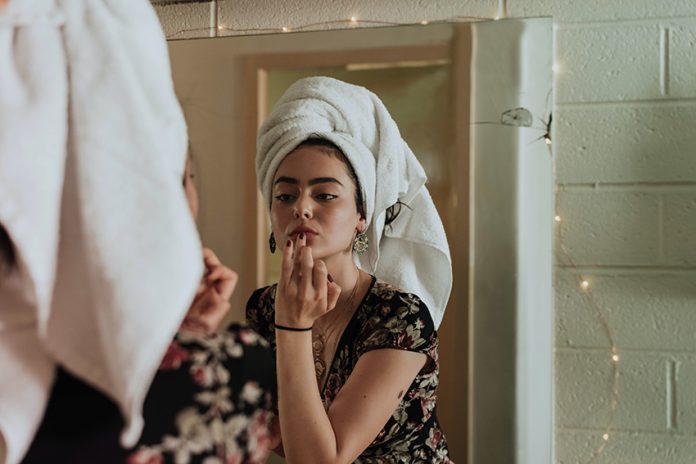In 1992, the United Nations named Mexico City as the most polluted city on Earth.
Pollutants were so dense that chilangos claimed that the toxins in the air killed birds in mid-flight, causing them to literally drop dead on the sidewalk.
The outlandishly high levels of contamination were attributed to the city’s industrialization over the previous half century. Industrialization also led to subways and buses that packed people in like sardines — frustration with which led to a sizable increase of poor-quality cars on the road. A rapidly growing population encouraging constant construction didn’t help matters.
All this was compounded by the unfortunate fact that Mexico City is perched at the base of a valley, making it nearly impossible for toxic fumes to escape its bowl-shaped landscape.
Somehow, Mexico City found reasonable solutions to the problem and it’s now a rare occasion that a dead bird drops onto your dinner plate while dining al fresco along leafy calle Colima.
That doesn’t mean, however, that residents, especially those of us newer to town, can’t feel pollution’s presence.
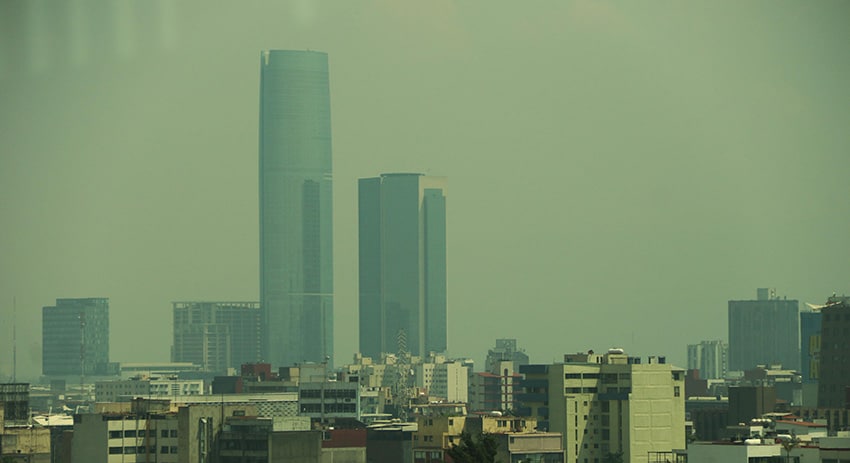
Maybe it comes as a surprise, but pollution can prove detrimental to your skin. Dr. Andrea de Villafranca, a clinical, surgical and cosmetic dermatologist at Skulptura Clinic in the Polanco section of Mexico City, says that since the skin is our body’s first point of contact with the outside world, toxins can seep in directly and rapidly accumulate, causing everything from eruptions to wrinkles.
Pollution can also affect our skin’s health. When this happens, Villafranca says that “biochemicals can increase the production of free radicals,” which can exacerbate aging, inflammation, dryness and an increase in sebum, an oily substance produced by the sebaceous glands to protect our skin — but overproduction causes oily skin and acne, a situation that regular pollution exposure can trigger, according to some studies.
Pollution’s not the only culprit: if you’re experiencing other significant changes in altitude, food, water and weather, you might find that the effects of relocation easily show up on your face.
Dr. Regina Malo, a dermatology specialist and esthetician in Mexico City, says that the skin is very susceptible to changes in environment, humidity and temperature.
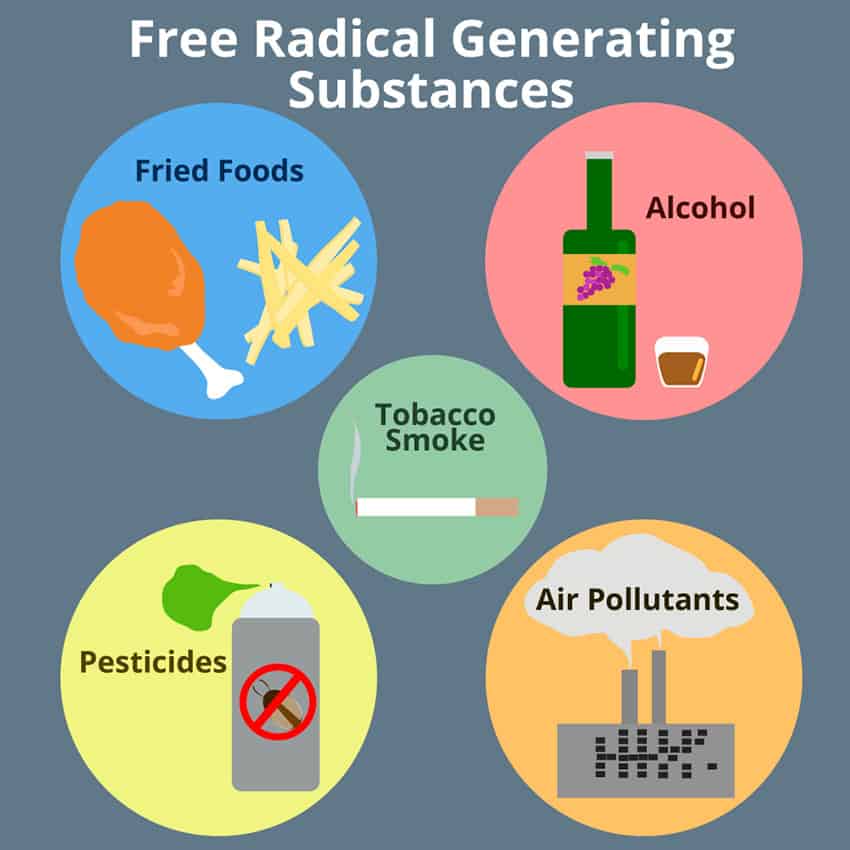
“The higher above sea level we are, the greater the sun exposure,” she says. So we must take extra steps to care for our skin if you’re living in Mexico City or anywhere else in the country where you’re exposed to pollution and/or intense sun.
I decided to investigate my options. Firstly, I went the natural route because it’s what resonates with me the most. Mexico is home to a handful of ingredients that can be very helpful for skin, many of which have been used since ancient times.
Mathilde Thomas of the French company Caudalie says that 80% of skin aging is actually caused by free radicals, not by your number of spins around the sun.
Cosmetic chemist Ni’Kita Wilson agrees. “Free radicals attack proteins like collagen and lipids [your skin’s natural protectants],” she says.
Adriana Ruono, founder of Vervan, a natural line of Mexican-made cosmetics, claims that because maize is a source of ferulic acid — a plant-based antioxidant — it has the ability to protect against damage caused by free radicals. (That obviously translates to eating more tortillas, right?!)
She also advocates cocoa (which means I’m going out for hot chocolate!) for its flavonoids that fight sun damage and tamarind for its high vitamin C content, which makes the skin brighter and more radiant. She also uses amaranth as a moisturizing agent.
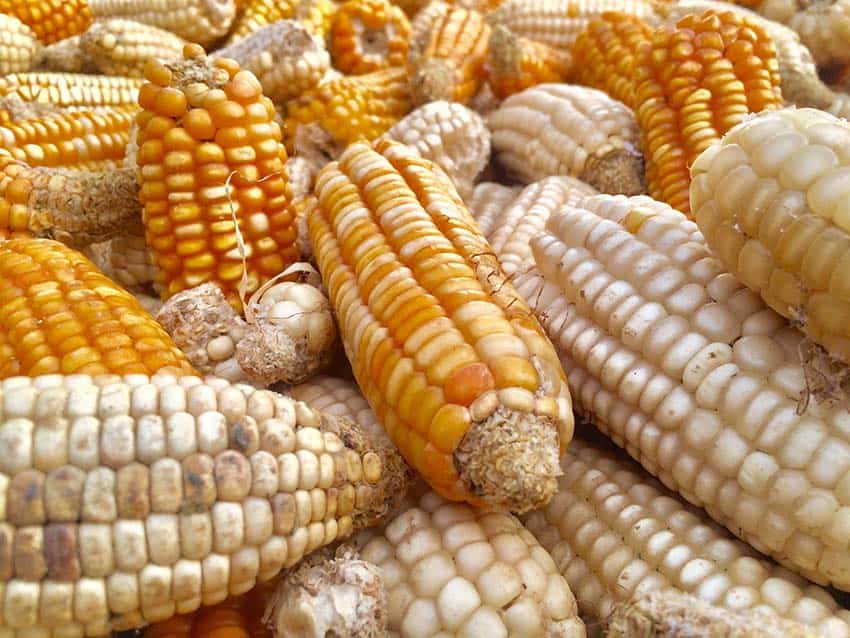
But sometimes, you just want something a bit stronger.
So I caved and found myself at the entrance to Senshi Derma Clinic in Polanco. The friendly receptionist swiftly guided me to a small room upstairs with lots of photography contraptions. Here, my photo was taken at various angles to analyze with a fancy computer program.
I wasn’t surprised to learn that a decade living in sunny Miami had contributed greatly to the demise of my once-so-smooth skin, and so I was whisked away yet again, this time to the office of one of Senshi’s in-house dermatologists.
We chatted in English about my current concerns and skin care routine before utilizing yet another contemporary gadget known as a SkinScope, invented by the popular skin care products company Skinceuticals.
The machine itself resembles the Steven Spielberg character E.T., with a large, round piece jutting forward where I could put my face and a wrinkly neck-like curtain to cover my head and block out any light. Its purpose was to use LED-UV light to uncover damage underneath my skin, like dark spots and freckles.
I was positively full of them. Mission accomplished.
I then enjoyed a 45-minute facial, bought some heavy-duty SPF moisturizer and floated out of the clinic feeling, well, normal.
My hopes had been that upon completion of my visit, I’d have visibly reduced my age from 38 to 20. It didn’t happen.
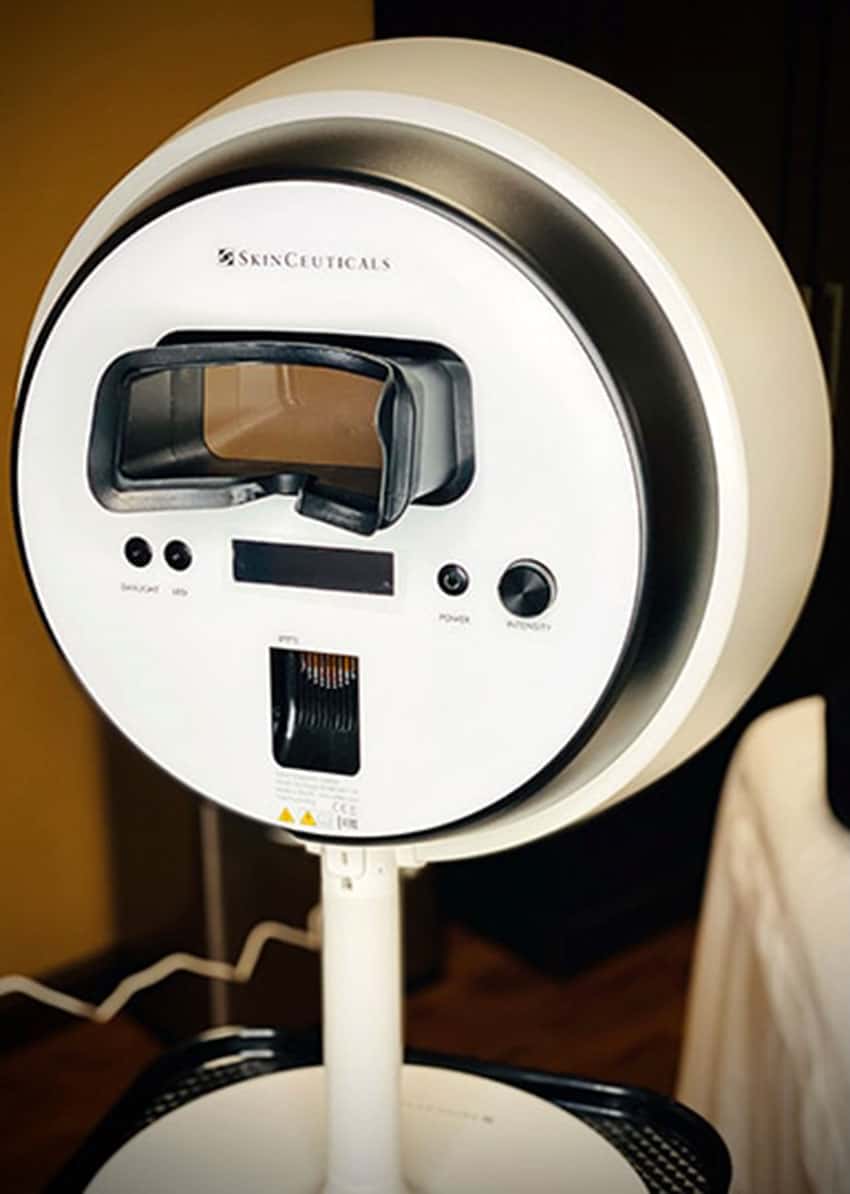
I went home rather disappointed. Did some work. Went to yoga. Ate veggies. Went to bed.
The next morning, I woke up to the glorious sound of birds chirping outside my window. Not thinking about much aside from feeding my cat, I caught a glimpse of myself in the mirror.
I was positively glowing.
Hm.
An hour later, I met a friend for tea. “Wow. Your skin looks great!” she beamed.
Hmm.
Mission accomplished.
Villafranca says that in order to avoid the possible negative consequences of relocation, patients should use “soap substitutes that help cleanse the skin without overdrying or irritating it.” She recommends unscented creams to hydrate the skin without exposing it to inflammation, along with a serum that contains niacinamide or vitamin C.
If you’re changing your skin care products entirely, it’s important to incorporate the new brands little by little so that your skin can adapt, she said. And like most dermatologists, she insists on the daily usage of a moisturizer with enough sun protection to fight UV rays, prevent sun spots and protect against skin cancer.
This is a regimen that I will follow, in addition to the inclusion of more corn and chocolate into my diet — because every little bit helps, right?
Bethany Platanella is a travel and lifestyle writer based in Mexico City. With her company, Active Escapes International, she plans and leads private and small-group active retreats. She loves Mexico’s local markets, Mexican slang, practicing yoga and fresh tortillas. Sign up for her (almost) weekly love letters or follow her Instagram account, @a.e.i.wellness.
